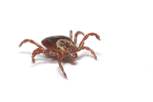Tick Control in the Greater Boston Area
What is a tick?
Ticks are characterized by their eight legs and two body sections and can be either labeled as a ‘hard’ or ‘soft’ tick depending on their exterior. Part of the arthropod family, ticks can be commonly mistaken for other insects with a similar physical appearance and anatomy. These external parasites live by feeding off the blood of animals and humans and are usually a reddish-brown color. Ticks are typically no more than 3mm in length. The United States is home to more ‘hard’ ticks, most commonly the Lone Star Tick, the Black-Legged (Deer) Tick, and the American Dog Tick, with Boson being a prime location for ticks to thrive.
Where are ticks found?
Ticks can occupy a diverse range of habitats, however, are most typically found in grasslands, forests, and woodlands. They can be found anywhere outside often where you would expect to find other small rodents and pests – in backyards, close to walls and wooden structures, and around foliage or wood piles. Ticks become much more prevalent during the summer months of July and August in Boston. Their small size (usually no bigger than a poppy seed) makes ticks troublesome to locate, meaning that identification of an infestation problem extremely difficult.
What are the dangers associated with ticks?
The biggest threat ticks pose is their ability to carry and transmit a variety of diseases and viruses that can cause harm to both animals and humans alike. Perhaps the most commonly recognized diseases associated with ticks are Rocky Mountain Fever and Lyme disease. The latter is the most prevalent tick-borne disease that causes flu-like symptoms but can become potentially deadly if left undiagnosed or untreated. People usually cannot tell when they have been bitten or recognize that their illness was the work of a tick, creating problems when seeking treatment for their symptoms.
Prevention and control
Several prevention measures can be taken to diminish the possibility of a tick infestation in the home. The main one being good maintenance and upkeep of outdoor areas including lawns, backyards, and other structures such as sheds and garages. Frequent use of pesticides specifically aimed at pest control will also help to prevent an environment suitable for tick survival. For pet owners, regularly checking animals for any signs of ticks, particularly during the summer months, is essential. Most human contact with ticks starts from interaction with infected animals – to survive, ticks must feed on a ‘host’ be it animal or human.
When to contact a professional
If you think you may have a tick problem in Boston that has become unmanageable, it’s time to call AAA Exterminating Company to assess and treat your home. As reputable exterminators operating in the Boston area, we can combat the problem using the most effective pesticides and can provide invaluable instruction for future pest control. Extermination also provides peace of mind for many clients that their problem has been efficiently dealt with and there is little chance of any reoccurrence. At AAA Exterminating Company, we provide an unparalleled personal extermination service using our years of experience in Boston area termite control to ensure your infestation problem becomes and remains something of the past. Call us at 800-439-6321 or connect with us online to begin tick treatment today.




